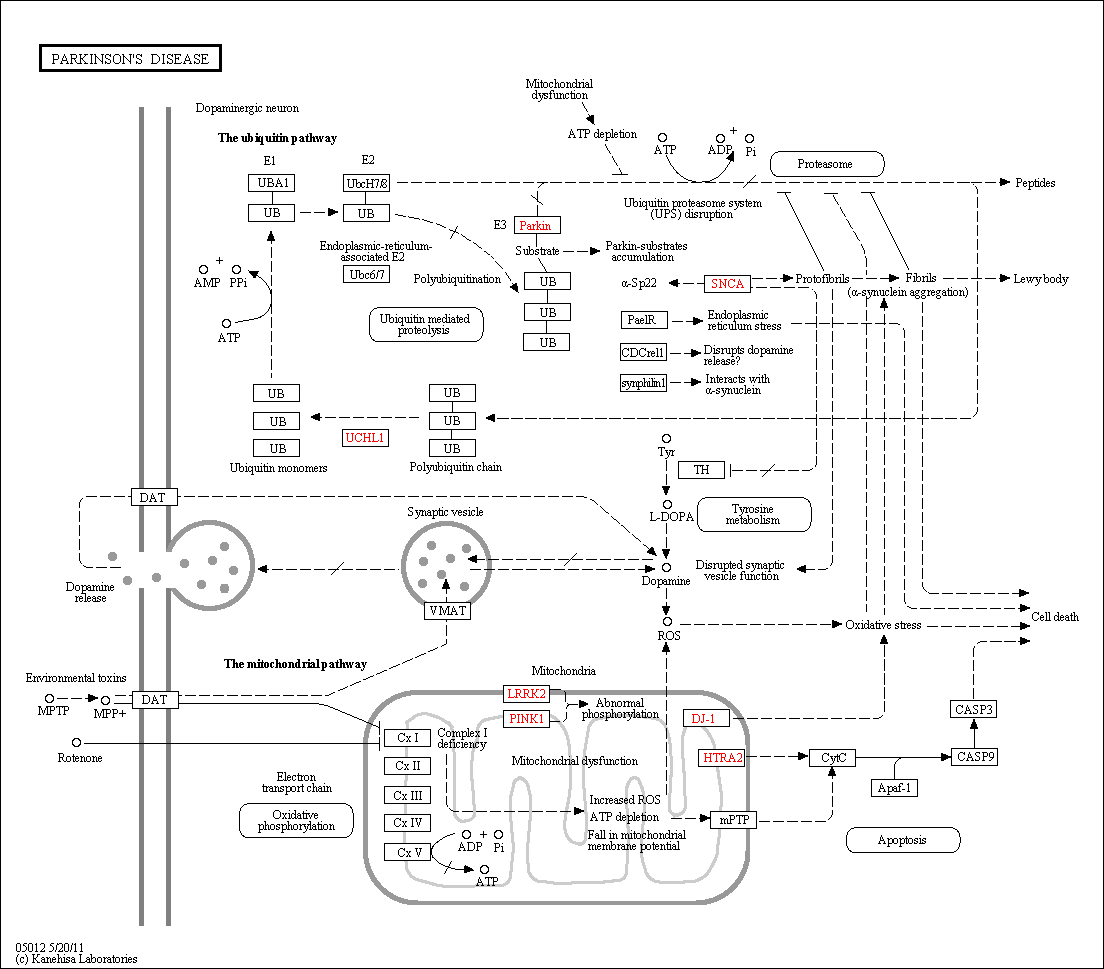Parkinson's Disease
Description: Parkinson's Disease (PD) is a neurodegenerative disorder affecting the central nervous system (CNS). The disease is most easily characterized by tremors, stiffness or rigidity, slowing of movement (bradykinesia), and postural instability. These symptoms have collectively become known as parkinsonism and can also be used to refer to other diseases with similar symptoms. Several neuropsychiatric symptoms that are slightly less common but can also be present are disorders of cognition, mood, and behavior. Parkinson's is most common in older individuals with the majority of cases occurring after the age of 50.
Even with the multitude of symptoms, PD is difficult to diagnose. Currently, there are no lab tests that can conclusively identify the disease; however, different brain scans can be used in order to rule out other possible diseases. Often diagnosis is reviewed periodically, as progress of the disease may indicate a misdiagnosis. A physician suspecting PD will usually prescribe the drug levodopa; a relief in motor impairments upon treatment tends to confirm a positive diagnosis.
Typical cases of Parkinson's are considered idiopathic, meaning that there is no know cause; however, other atypical cases are genetic and are sometimes referred to as 'familial' PD. The disease results from cell death in the substantia nigra, a region of the midbrain. The targeted cells are dopamine-secreting cells. Generally, high levels of dopamine function promote motor activity, while low levels - such as in the case of patients suffering from PD - require greater exertions in order to perform any given motor task. The cause of cell-death within the brain is yet unknown, but several mechanisms have been hypothesized. One such mechanism suggests an abnormal accumulation of alpha-synuclein bound to ubiquitin within these damaged cells. These proteins are insoluble and thus accumulate in the cells eventually forming Lewy bodies. This hypothesis is supported by evidence of Lewy bodies which are often found during the autopsy of an affected individual.
Parkinson's Disease can usually be managed using several different treatments. However, since the disease invariably progresses with time, treatment success diminishes as the disease takes it course. Currently there is no known cure for this disease.

Related BMRB Molecules
For complete information about pathway, see KEGG [map05012]
